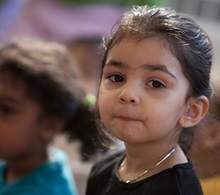 We live in a constantly changing world. The pace of change is the most rapid that it has ever been. New products and processes are continually available and the rate at which we are exposed to new information is continually increasing. This can be overwhelming at times. Sometimes we are able to shelter our children from so much change, but often not. If it is overwhelming to us, how does it feel to children? And that is just “normal” everyday change. What about the big unexpected changes?
We live in a constantly changing world. The pace of change is the most rapid that it has ever been. New products and processes are continually available and the rate at which we are exposed to new information is continually increasing. This can be overwhelming at times. Sometimes we are able to shelter our children from so much change, but often not. If it is overwhelming to us, how does it feel to children? And that is just “normal” everyday change. What about the big unexpected changes?
Most of us, and especially children, appreciate some level of “sameness” in our lives. That doesn’t mean that we don’t appreciate the new and the novel, but we’d like more sameness than change. Children need time to process all of the information that they are exposed to and appreciate daily routines and repetition or they may become stressed. They like knowing that when they arrive home from child care, mommy and daddy fix dinner and then the family eats, and then there is a bath and then two stories. Children thrive on the predictability of daily routines.
So how then do we help children handle change – both the big changes (new sibling; family illness; new school) and the little changes (new breakfast foods; new morning routine; new shoes)?
Tips for Helping Children Cope with Change
- Give advanced warning. Have a discussion something like, “The place where Mommy works thinks she will be a bigger help if we move to another place. We are going to look for a new house in a place called Georgia. Will you help us pick out the house?”
- Keep as much the same as possible. During a big change, like adding a sibling to the family, try to keep as much the same as possible. For example, this is not the best time to also move your child from a crib to big bed.
- Answer all their questions. Depending on your child’s age, he may have a lot of questions. Do your best to answer them all, even if some are repeated many times.
- Expect that some regression may happen. At times of change, children may regress to earlier behaviors. For example, a child who was toilet trained may revert back to having accidents. This is normal – strive for patience.
- Be accepting of grieving. Your child may go through a process that looks a lot like grieving as she navigates new waters with a new house, sibling, teacher or school. Listen, don’t be too quick to distract, and at the end, remind her of all the positives.
During times of change, a little extra attention will go a long way in helping children deal with stress. Plan an hour or a half hour each week where your child has your undivided attention. It is important to use play time to help a child’s development. Let your child pick the activity or follow your child’s lead. For example, if your infant wants to drop a toy over and over again from her high chair, retrieve the toy and let her drop it again. Or your preschooler wants to make cookies. Find time to do that and let him take an active role in the process even if he makes a mess. How does that help your child deal with change? Extra attention and patience from you helps your child understand that although some aspects of life are changing, your love and care remains constant.


